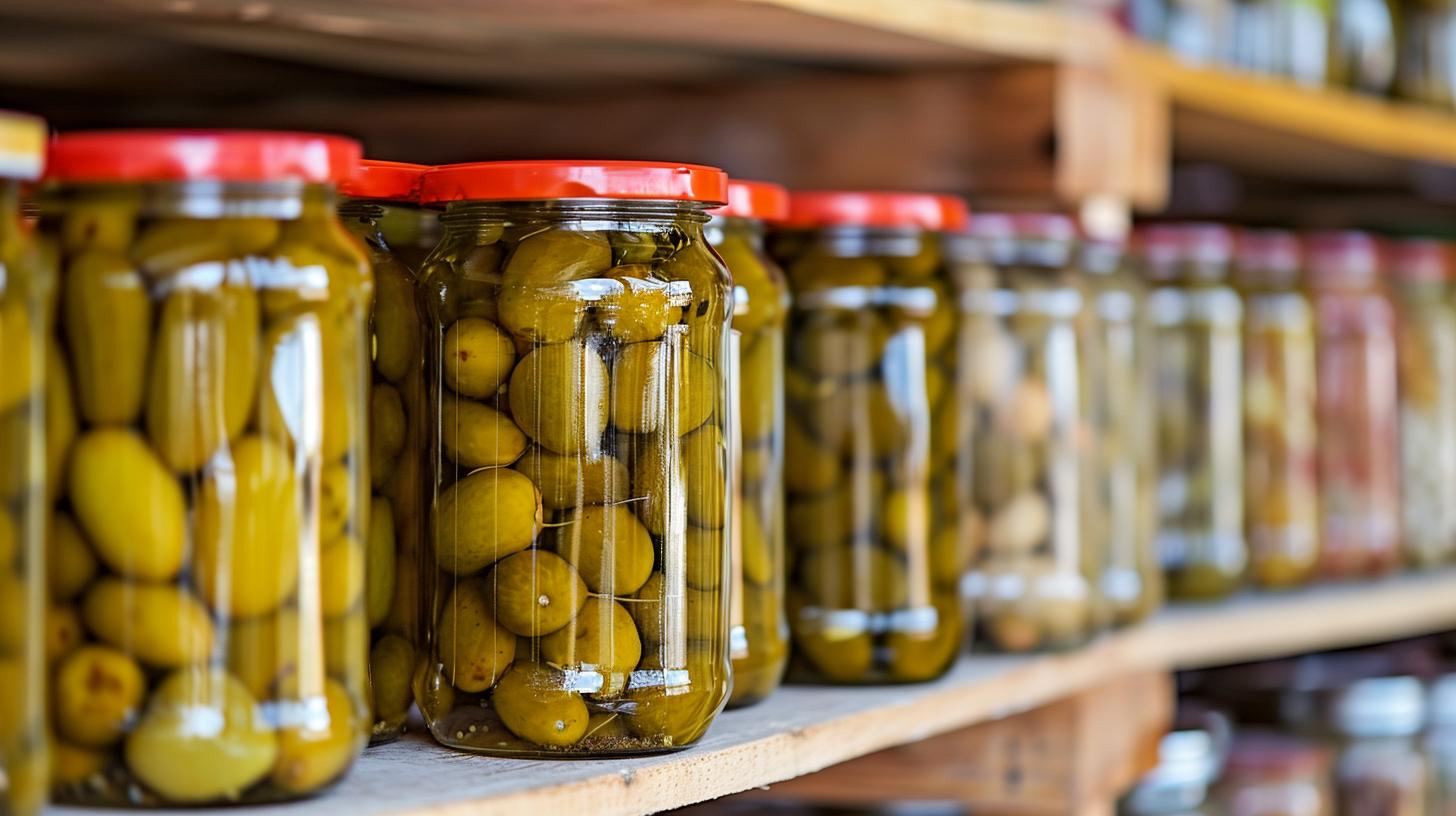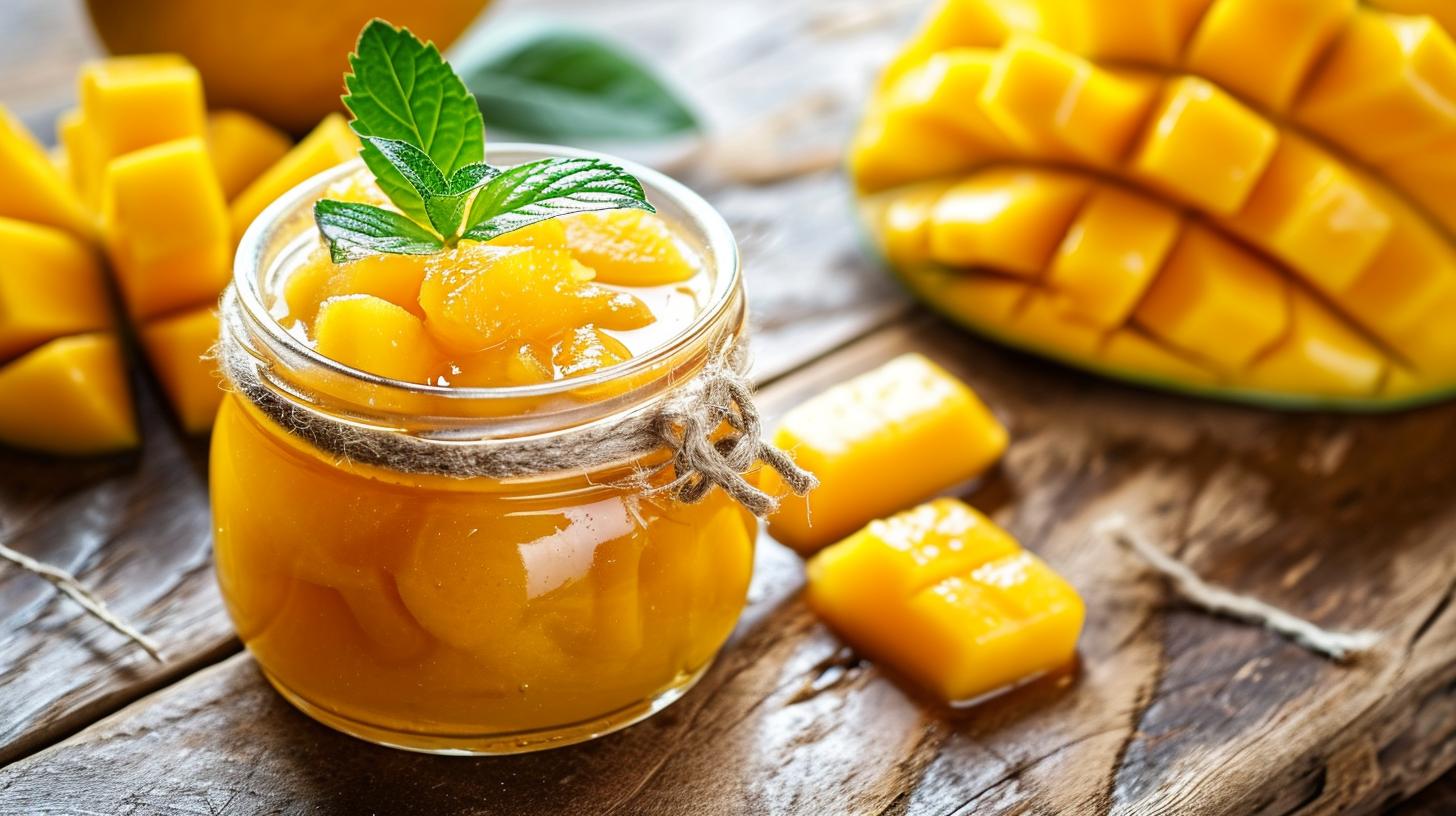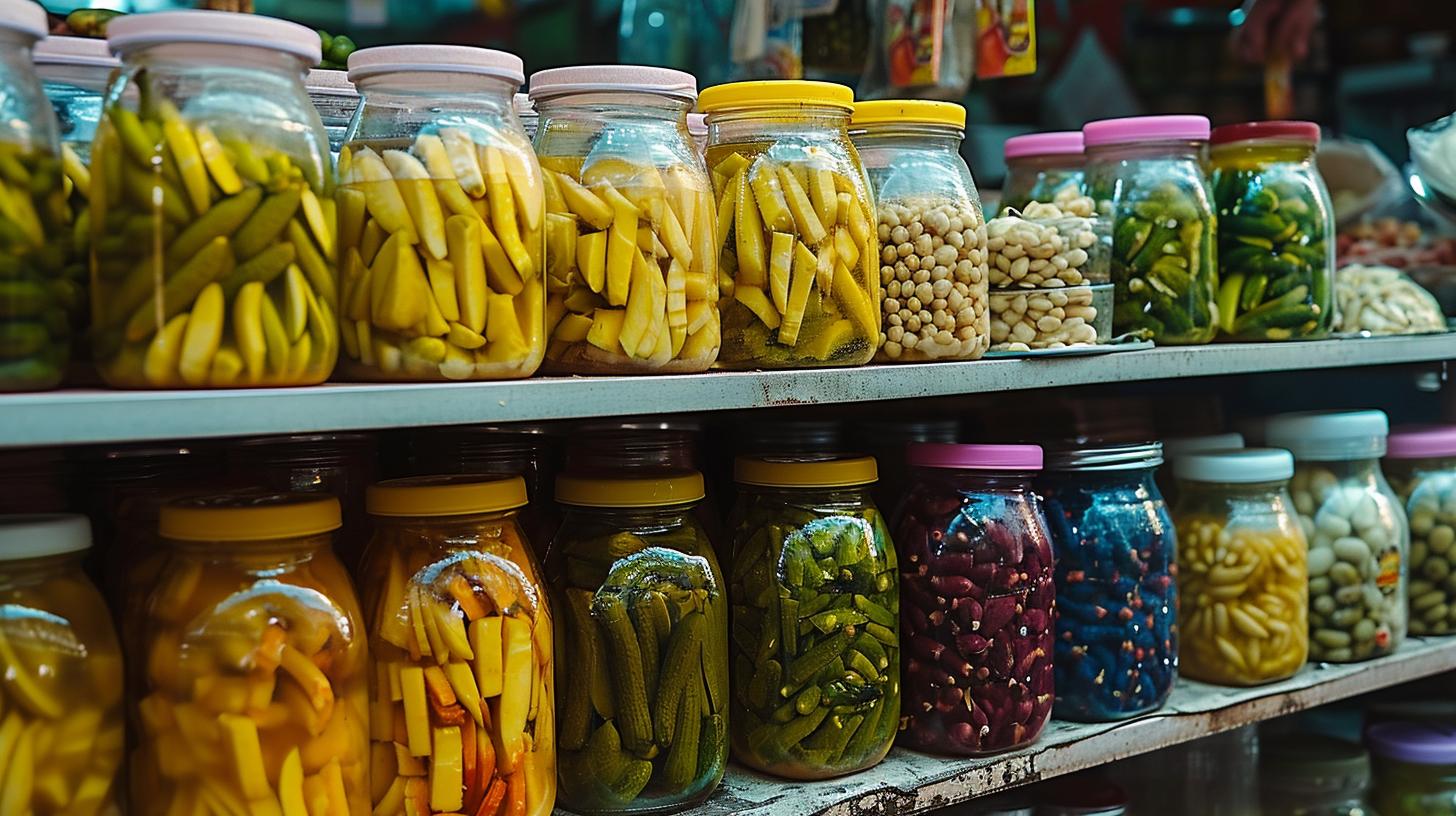
Mango pickle, a popular condiment in South Asian cuisine, has been a staple for centuries, adding bold flavors to dishes and providing a unique tanginess. Many enthusiasts of this traditional preserved mango delight often ask – is mango pickle good for health?
Known for its robust and pungent flavor, mango pickle is a beloved addition to meals in countries like India and Pakistan, where it is enjoyed alongside rice, bread, and other main courses. Its widespread popularity has led to many discussions about its potential health benefits and drawbacks.
Within South Asian communities, mango pickle is cherished not only for its taste but also for its cultural significance. This treasured condiment has deep roots in the region’s culinary traditions and is often made with a blend of spices that vary based on regional preferences. However, as with any food item, it’s important to consider the nutritional aspects of mango pickle to understand its impact on one’s health.
In this article, we will explore the nutritional information of mango pickle along with its potential health benefits and concerns about high sodium levels. We will also delve into alternative options for those monitoring their salt intake and highlight the varying recipes from different regions across South Asia. Let’s uncover all there is to know about this beloved condiment and whether it truly holds any health value.
Nutritional Information
Mango pickle is a popular condiment in South Asian cuisine, known for its tangy and spicy flavor. It is made by marinating raw mangoes in a mixture of salt, oil, and various spices such as turmeric, mustard seeds, and chili powder. This traditional recipe has been passed down for generations and is a staple in many households across the region.
Health Benefits
Despite its high sodium content, mango pickle does have some potential health benefits. One of the main advantages is its high vitamin C content due to the presence of raw mangoes. Vitamin C is essential for maintaining a healthy immune system and promoting the body’s natural defenses against infections and illnesses. Additionally, the spices used in making mango pickle, such as turmeric and mustard seeds, are known for their anti-inflammatory and digestive properties.
Drawbacks
On the other hand, one of the main concerns about mango pickle is its high sodium levels. Excessive sodium consumption can lead to high blood pressure and an increased risk of heart disease. This makes it important for individuals to be mindful of their overall salt intake when including mango pickle in their diet.
While it
Potential Health Benefits
Mango pickle, a popular condiment in South Asian cuisine, is known for its unique flavor and versatility. While it may not be the first thing that comes to mind when thinking about health foods, mango pickle actually offers some potential health benefits. One of the key benefits of consuming mango pickle is improved digestion. The fermentation process involved in making mango pickle produces probiotics, which are beneficial bacteria that support gut health and aid in digestion.
In addition to supporting digestive health, mango pickle also contains high levels of vitamin C. This essential nutrient is known for its role in boosting the immune system and fighting off infections. By including mango pickle in your diet, you can potentially improve your body’s ability to ward off illnesses and stay healthy.
It is important to note, however, that while mango pickle does offer some health benefits, it should be consumed in moderation due to its high sodium content. Excessive salt intake can have negative effects on blood pressure and heart health.
Therefore, it is recommended to enjoy mango pickle as part of a balanced diet and to be mindful of sodium intake from other sources. In conclusion, while mango pickle can provide digestive support and a boost to the immune system, it should be enjoyed in moderation as part of a healthy diet.
| Health Benefits | Details |
|---|---|
| Improved Digestion | Mango pickle contains probiotics that support gut health and aid in digestion. |
| Immune System Support | The high vitamin C content in mango pickle helps boost the immune system. |
| Moderation | Due to its high sodium content, mango pickle should be consumed in moderation as part of a balanced diet. |
Concerns About Sodium
Understanding the Impact of High Sodium Levels
Mango pickle is a popular condiment in South Asian cuisine, known for its tangy and spicy flavor. However, it is important to acknowledge that mango pickle typically contains high levels of sodium. Excessive consumption of sodium can lead to an increased risk of high blood pressure, heart disease, and stroke. The American Heart Association recommends limiting daily sodium intake to no more than 2,300 milligrams, with an ideal limit of 1,500 milligrams for most adults.
Effects on Blood Pressure and Heart Health
The high sodium content in mango pickle can have negative effects on blood pressure and heart health. When consumed in excess, sodium can cause the body to retain water, leading to fluid buildup and increased strain on the heart. Over time, this can contribute to the development of hypertension and other cardiovascular issues. Individuals with existing heart conditions or those at risk for heart disease should be particularly mindful of their sodium intake, including their consumption of mango pickle.
Moderation and Alternative Options
While it is important to be aware of the potential impact of high sodium levels in mango pickle, moderation is key. Enjoying this condiment in small quantities as part of a balanced diet may not pose significant health risks for most individuals.
Additionally, there are alternative options available for those looking to reduce their sodium intake while still enjoying the flavors of mango pickle. Some recipes call for lower salt content or offer creative substitutions that can help mitigate the overall sodium levels.
In summary, while mango pickle is a beloved culinary tradition in South Asian cuisine, it’s essential to be mindful of its high sodium content and consider moderation when incorporating it into your diet. Understanding the potential impact on blood pressure and heart health allows individuals to make informed choices about their consumption of this flavorful condiment.
Alternatives and Moderation
When it comes to enjoying mango pickle while maintaining a healthy lifestyle, there are a few alternative options and moderation techniques that can be helpful. While mango pickle is undeniably delicious and has potential health benefits, its high sodium content can be a cause for concern for some individuals. Here are some alternative options and moderation strategies to consider:
- Choose low-sodium or homemade versions: Look for low-sodium or homemade mango pickle recipes that allow you to control the amount of salt added.
- Use in small quantities: Instead of consuming large servings of mango pickle, use it sparingly as a condiment or flavor enhancer to minimize sodium intake.
- Balance with other foods: Pairing mango pickle with foods that are naturally low in sodium, such as fresh fruits and vegetables, can help balance out the overall salt content of your meal.
Moderation is key when it comes to enjoying mango pickle without compromising your health. By being mindful of portion sizes and balancing out your overall sodium intake, you can still savor the delicious flavor of mango pickle while minimizing its potential negative impact on your health.

In addition to these moderation strategies, there are also alternative condiments and flavorings that can be used as substitutes for mango pickle if you are concerned about its salt content. Consider exploring the use of fresh herbs, spices, and other types of pickles made from lower sodium ingredients. This can provide variety in flavors while reducing the overall sodium intake from condiments. Remember, diversity in flavor profiles is always exciting and beneficial.
Regional Variations
Mango pickle is a staple in South Asian cuisine, known for its tangy and spicy flavor profile. It is made by marinating raw mangoes with various spices and seasonings, creating a delicious and versatile condiment that can be enjoyed alongside a variety of dishes. However, it’s important to note that the recipe for mango pickle can vary significantly from region to region within South Asia, resulting in different flavor profiles and ingredients.
Regional Variations of Mango Pickle
- In North India, mango pickle is often prepared using a combination of spices such as mustard seeds, fenugreek seeds, and fennel seeds, giving it a pungent and aromatic flavor.
- Conversely, in South India, mango pickle is typically spicier and may contain ingredients like red chili powder, garlic, and asafoetida for a bold and intense taste.
- Meanwhile, in Pakistan and Bangladesh, mango pickle may have a milder flavor profile with the addition of ingredients like cumin powder, turmeric, and coriander seeds.
Each regional variation of mango pickle offers a unique culinary experience, reflecting the diverse gastronomic traditions found throughout South Asia. Additionally, these regional differences highlight the cultural significance of mango pickle within each community.

As individuals debate whether mango pickle is good for health or not, it’s important to consider the impact of these regional variations on its nutritional content. Depending on the specific ingredients used in the preparation of mango pickle from different regions in South Asia, its nutritional composition may vary slightly. However, one consistent factor across all variations is the high sodium content often present in this condiment.
Ultimately, whether you opt for the North Indian version with its pungent flavors or the spicier South Indian variation, it’s essential to consume mango pickle in moderation and be mindful of your overall salt intake for optimal health.
Cultural Significance
Mango pickle, also known as aam ka achar, is a popular condiment in South Asian cuisine. It is made by marinating raw mangoes in a mixture of various spices, salt, and oil, resulting in a tangy and savory flavor. This traditional dish holds immense cultural significance in South Asia and is often enjoyed with meals to add an extra kick of flavor.
In South Asian countries like India, Pakistan, Bangladesh, and Sri Lanka, mango pickle is not just a condiment but also a symbol of tradition and heritage. The art of making mango pickle has been passed down through generations, with each family having their own unique recipe that has been perfected over time. It is often prepared during the summer months when mangoes are in season, and the process of making it brings families together to bond and share stories.
Furthermore, mango pickle is an integral part of religious and ceremonial occasions in South Asia. It is commonly used as an offering during festivals and special events. The distinct taste of mango pickle evokes nostalgic memories for many people and serves as a reminder of their cultural roots. For these reasons, it holds an important place in the hearts of those who hail from South Asia.
Overall, the cultural significance of mango pickle
Conclusion
Mango pickle is a popular condiment in South Asian cuisine, known for its tangy and spicy flavor. It is made by marinating mangoes in salt, oil, and various spices, and then allowing the mixture to ferment. While it is beloved for its taste and ability to enhance the flavor of dishes, there are concerns about whether mango pickle is good for health.
When it comes to the nutritional information of mango pickle, it is important to note that it is high in vitamin C due to the presence of mangoes and spices like turmeric. Vitamin C is essential for a healthy immune system and can aid in the body’s natural defense against illnesses. However, one drawback is the high sodium content in mango pickle. Excessive sodium consumption can lead to high blood pressure and an increased risk of heart disease.
Despite the concerns about sodium, there are potential health benefits associated with consuming mango pickle. The spices used in its preparation, such as turmeric, fenugreek seeds, and mustard seeds, are known for their digestive properties. Additionally, these spices contain antioxidants that can contribute to overall wellness.
| Nutritional Information | Data |
|---|---|
| Vitamin C Content | High due to presence of mangoes and spices like turmeric |
| Sodium Levels | High; excessive consumption can lead to high blood pressure and increased risk of heart disease |
Reader Interaction
In conclusion, the question of whether mango pickle is good for health ultimately depends on various factors. While it does offer nutritional benefits such as vitamin C and potential digestive and immune system support, the high sodium content raises concerns about its impact on heart health and blood pressure. It’s important for individuals to consider their own health needs and dietary restrictions when consuming mango pickle, opting for moderation and exploring alternative low-sodium options if necessary.
Furthermore, the cultural significance of mango pickle in South Asian cuisine cannot be overlooked. Its regional variations and traditional importance showcase the deep-rooted connection between food and culture. Many people have fond memories associated with mango pickle, making it a beloved part of their culinary experiences. This cultural aspect adds another layer to the discussion about its health impact, as the emotional and social aspects of food consumption also play a role in overall well-being.
As we wrap up this exploration into the health impact of mango pickle, it’s important to note that individual experiences with this popular condiment can vary widely. We encourage our readers to share their thoughts, experiences, and perspectives on whether they believe mango pickle is good for health.
Engaging in open discussions about food choices and their effects on our bodies allows us to gain valuable insights and make informed decisions about our diets. Whether you have specific health considerations or simply enjoy the taste of mango pickle, your input is valuable in shaping a well-rounded understanding of this debated culinary item.






